Jewish Heritage in Northern Ireland

Northern Ireland is an increasingly multicultural society today, but as a country so strongly associated with Christian denominational conflict, the existence of non-Christian groups has, until recently, been largely neglected by Irish and British historians. Citizens and visitors alike may therefore be unaware that Northern Ireland has a rich Jewish heritage.
You may recognise some of these famous Jewish names with Belfast connections: Sir Otto Jaffe (elected Lord Mayor of Belfast in 1894 and again in 1904); Chaim Herzog (former president of Israel); Helen Lewis (dancer and choreographer); Gustav Wilhelm Wolff (of Harland and Wolff); Isaac, Maurice and Harry Adlestone (Beaverbrooks Jewellers); Harold Goldblatt (a founder of the Ulster Group Theatre); and Judith and Ray Rosenfield (journalists/writers/arts critics).
The Jewish community in Northern Ireland began to form in the mid 19th century through German linen merchants who had made the province their home. The first synagogue in Northern Ireland was established by Daniel Jaffe in Great Victoria Street. The congregation later relocated to North Belfast, the heartland of the Belfast Jewish community at the time. Smaller congregations also existed in Derry and Lurgan.
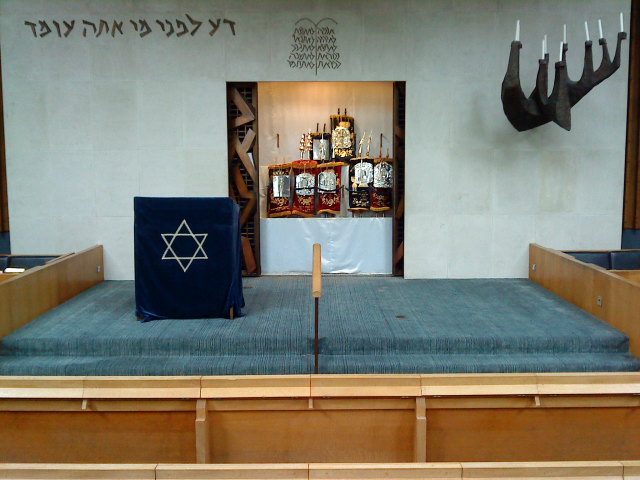
By all accounts, the Jewish people were generally well accepted in Northern Irish society; however, anti-semitic incidents were not unknown. A refusal to grant tennis club membership to a group of Jewish children in 1926 gave rise to the Belfast Jewish Institute – a vibrant organisation devoted to the social life of the local Jewish community.
During the Second World War, the Kindertransport, a rescue operation founded in collaboration between Jewish and multi-denominational Christian volunteers, successfully transported up to 10,000 unaccompanied refugee children from mainland Europe into the United Kingdom. Approximately 300 arrived in Northern Ireland. Some were fostered by local Jewish families; others were housed at a hostel at Cliftonpark Avenue in Belfast and at a disused farm in Millisle, which the children themselves helped to revamp.
Despite the difficulties faced in observing Jewish rituals in an overwhelmingly Christian country, the community flourished for a while. At its peak in the mid 20th century, it reached around 1,500 people. However, in the latter half of the 20th century, numbers began to decline. Concern at the escalating political situation played a key role, as well as young people seeking larger Jewish communities in Great Britain and further afield. The Belfast congregation today numbers about 80 people.
Queen’s University Special Collections
Special Collections at Queen’s has been developing a varied collection of books and archival material relating to Jewish heritage in Ireland. The books in our Hibernica collection include memoirs, biography, history, poetry and short stories of the Jews across the island of Ireland.
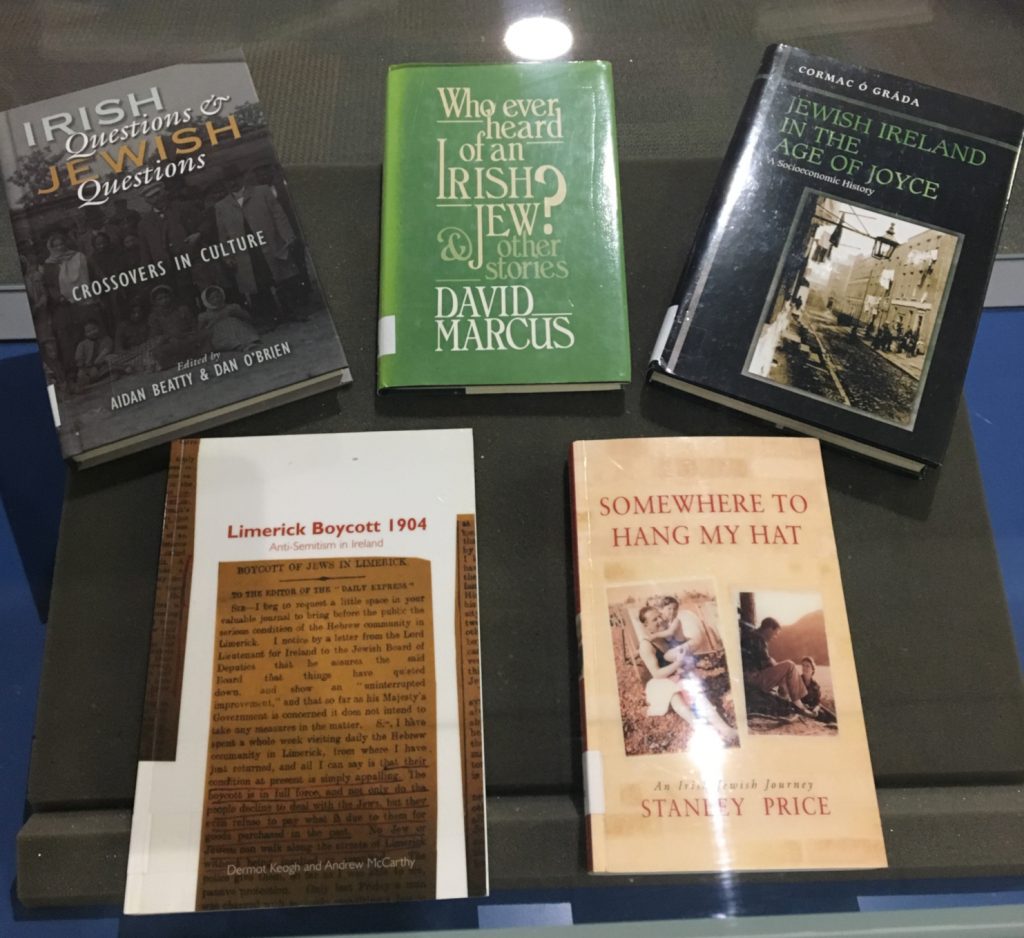
Selection from the HIbernica Jewish Ireland Collection
However, our manuscript collections are distinctly Northern Irish in content or origin.
Belfast Hebrew Congregation
The Belfast Hebrew Congregation has deposited its archive at Queen’s Special Collections. It comprises nearly a century’s worth of various minutes and records from 1897.
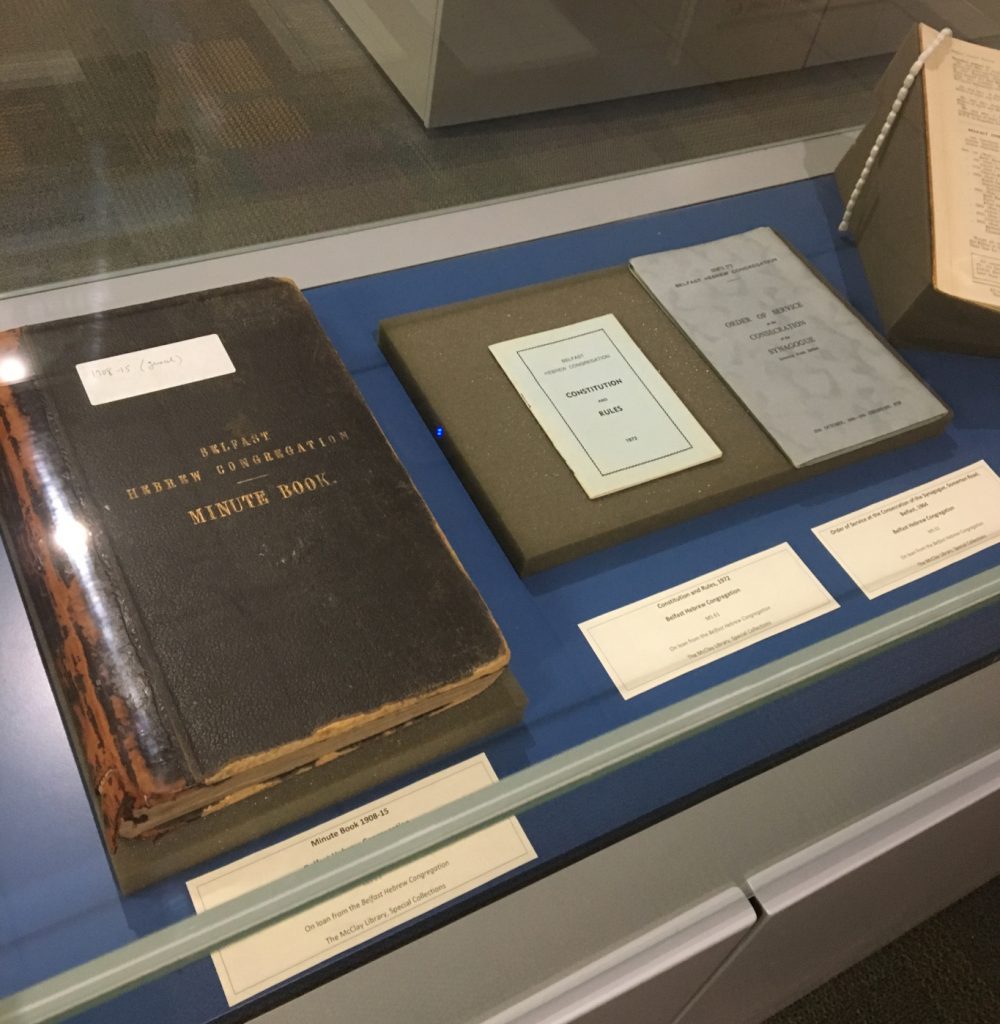
Ross-Rosenzweig Collection
This 1957 bequest by John Ross (formerly Rabbi Jacob Rosenzweig) comprises his collection of monographs, periodicals and facsimiles on or relating to a variety of Hebrew and Jewish subjects and studies. It is a visually beautiful collection and was believed at the time to be the most complete collection of books about the Dead Sea Scrolls in Northern Ireland, and perhaps further.
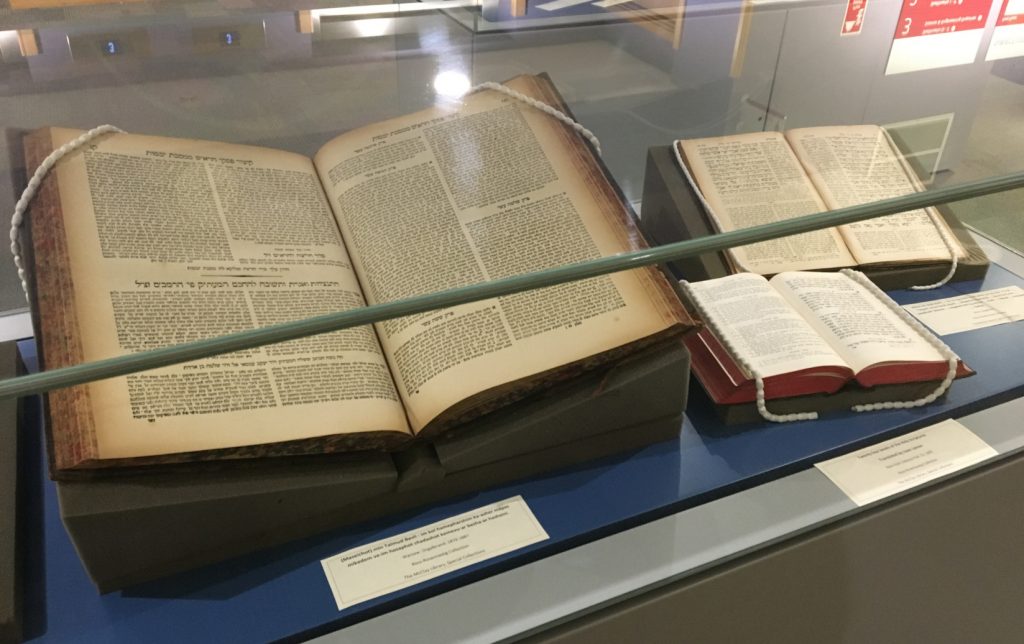
Selection from the Ross-Rosenzweig Collection
The Rosenfield Collection
A collection of article clippings, scripts and other miscellaneous material belonging to Judith and Rachel ‘Ray’ Rosenfield – two Belfast sisters who were journalists, writers and critics in the realms of art, drama and literature. Judith and Ray very much paved the way for female journalists in Northern Ireland.
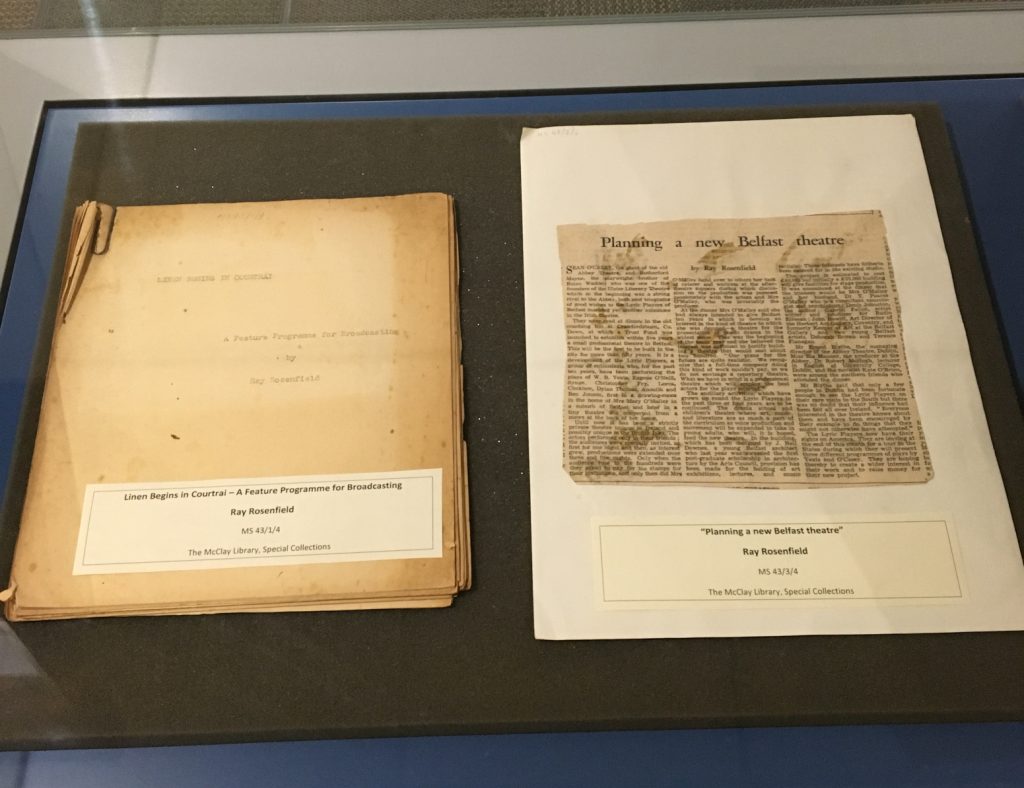
Selection from the Rosenfield Collection
Recent digitisation projects have brought life to some previously unseen and unheard material.
The Jewish Gazette

The Jewish Gazette (Jan – Dec 1933 and Feb 1934), published online by Queen’s in 2017, was one of the first journals of Jewish interest in Ireland. It was originally published in Belfast on the brink of a tragic historical era for European Jews.
The Belfast Jewish Record
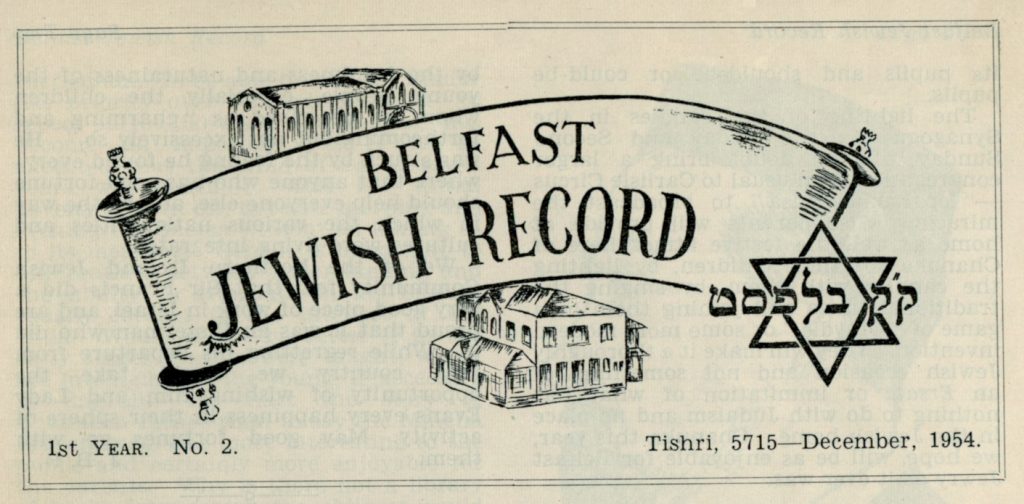
The Belfast Jewish Record (1954 – 2019), a journal published by and for the Belfast Jewish community, was released online for the first time in June 2019.
These journals are incredible resources for anyone interested in the Jewish community in Northern Ireland during the 20th Century and onwards. They provide content as wide-ranging as spiritual guidance, political concerns, Rosh Hashanah recipes, children’s interest, theological discussions, and a variety of fundraising and social events. There is some very straight talking and plenty of humour (see anecdote above), but what stands out clearly is the diversity of viewpoints and the vibrancy of the Jewish social scene set against the challenge of a shrinking community.
Oral Histories
The oral histories of Jewish refugees in Northern Ireland, an extensive project undertaken by Dr David Warm during the 1990s, have been digitally preserved. The audio files can now be accessed by appointment in Special Collections.
Further links:
Belfast Jewish Community & Hebrew Congregation – Jewish Communities & Records
Irish Jewish Genealogical Society


Fantastic news about digitizing the Belfast Jewish Record.
I assume one has to examine the synagogue records eg minute books in person. Might these be digitized in the future?
Very glad you are finding the resource useful. There are no plans to digitise the record of the Belfast Hebrew Congregation but it is possible to access the records in Special Collections. Our Visiting Special Collections web page explains how you can access this and other collections.
I went to school with Ulster Scot Protestants in Northeast Philadelphia, 1957-1969. I got along with all of them. I was wondering how Jewish-Protestant relations are in today’s Ulster.
Hi Barry, thank you for getting in touch.
You might find it helpful to browse through the Belfast Jewish Record, which covers a wide range of information and thoughts from the local Jewish community. Journal issues up to 2019 are currently published online:
https://digital-library.qub.ac.uk/digital/collection/p15979coll24
With best wishes,
Keira